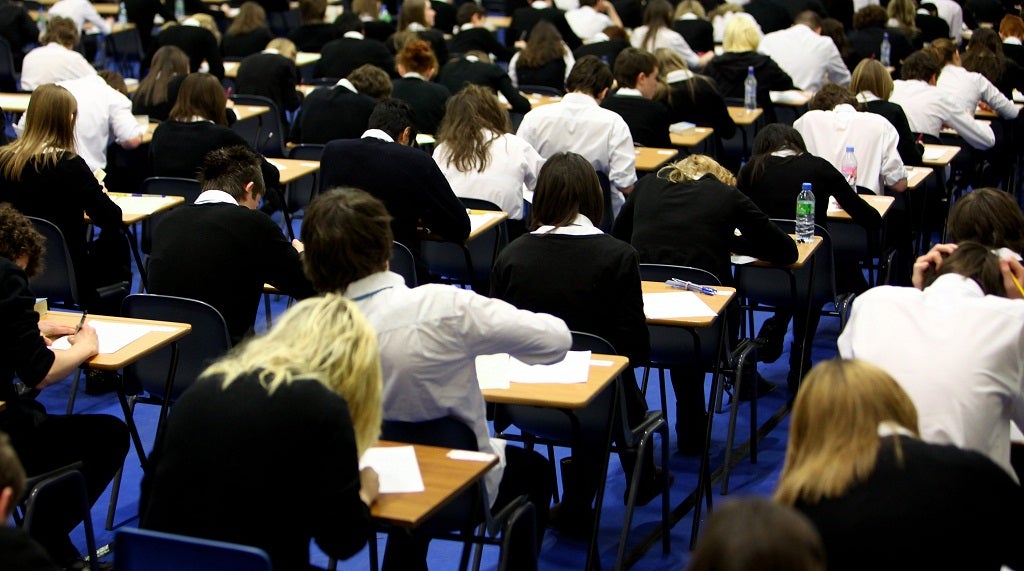OECD: English pupils are 'more practical than academic'

Teenagers in England’s schools are among the best in the world when it comes to solving problems, according to the first international study of its kind.
The study, published by the Organisation for Economic Co-operation and Development (OECD), of 44 nations concludes: “Students in England perform significantly above the OECD average in problem solving (scoring 517 points compared to an OECD average of 500). England ranks above the top-performing European countries.”
It puts England in 11th place in the international table.
However, it still lags behind the Pacific Rim countries - top of the international table were Singapore, Korea and Japan with scores of 562, 561 and 551 respectively.
According to the researchers, England’s good showing is likely to be down to teachers regularly giving pupils real-life problems to solve - such as finding out the most convenient meeting place for three friends from different places in terms of miles.
Michael Davidson, of the OECD, said it was a “fair conjecture” to suggest the reason for the good performance was because “these skills are being taught in schools”.
“They spend so much time in secondary schools that they must be learning these skills at school - rather than picking them up elsewhere.”
A breakdown of the figures showed that England also had a higher than average number of top-class performers (14.3) and the percentage only able to manage simple problems like choosing the cheapest model from a furniture catalogue was also lower than the OECD average at 14.6 per cent.
The figures also showed that, in contrast to the results in academic tests, boys were more likely than girls to perform better at problem solving. In England, the gap between the sexes was six percentage points - less than the international average and said by researchers to be statistically insignificant.
Today’s figures come after a disappointing result for the UK in last year’s PISA study, which measured the performance of 15-year-olds internationally in reading and maths.
It showed that literacy and numeracy standards in the UK had shown little or no improvement for three years - we were 26th in maths and 23 in reading out of 65 countries.
The findings prompted Education Secretary Michael Gove to claim that standards had stagnated under Labour, adding: “the last government failed to secure the improvements in school standards our young people desperately”.
He has introduced a shake-up of tests and exams to make them tougher and - within the national curriculum tests for 11-year-olds - concentrate on core knowledge plus spelling grammar and punctuation. The emphasis will be put on end-of-course exams rather than coursework during the periods of study.
However, there was a word of caution from Mr Davidson over this approach. “It will obviously be important not to squeeze out all the opportunities there are to develop problem solving skills now amongst 15-year-olds”.
Russell Hobby, general secretary of the National association of Head Teachers, said; “PISA’s study into problem-solving tells us three important things.
“Firstly, problem solving is increasingly important to success in life and work, Secondly, schools can make a difference. Thirdly the UK performs ‘significantly above average’ in developing problem solving skills in young people.
“This last fact is of immense credit to our schools and challenges us to discover how we can do even better.
“It seems that the answers lie both in what you teach and how you teach. Core skills in maths and literacy matter greatly as does knowledge of particular domains. However, it is also important to build an inquiry-based, problem-solving style of learning ob top of these foundations.”
A spokesman for the Department for Education said: “These results show our young people are strong in problem-solving - this is a skill we should build on.
“But they also confirm that generally those who perform best in maths, reading and science - Singapore, Shanghai, Hong Kong and South Korea - are also those who do best in problem-solving.”
Technology and the art of problem solving
A strong emphasis on teaching technology is essential to developing pupils’ problem solving skills, according to the head of one of the country’s most successful state schools.
“We encourage all youngsters to take technology up until GCSE,” said Mike Griffiths, head of Northampton School for Boys.
“That’s an area where they’re always being confronted by design problems and issues like ‘how are you going to do this?’"
“It really should pervade all through the curriculum, though. Take science and maths, for instance. It’s all very well to teach about quadratic equations but it’s using them and knowing what you’re going to do with them that gives you the kind of practical skills that the British always seem to have had.
”We’ve been good at achieving things - climbing Everest, getting the land-speed record, building better ships and better firearms - although possibly the latter is one we might not celebrate now.”
Today’s research showed that boys were better at problem solving than girls - six percentage points ahead in English schools, according to the report.
Mr Griffiths believes his boys prove that “problem solving is an extremely important skill, rather than just concentrating on rote learning, which may well be necessary for learning the basics,” he said. “We need also to encourage pupils to be innovative and come up with solutions to get round a problem.
“I would like to think that’s something that the British are still very good at.”
Join our commenting forum
Join thought-provoking conversations, follow other Independent readers and see their replies
Comments
Bookmark popover
Removed from bookmarks